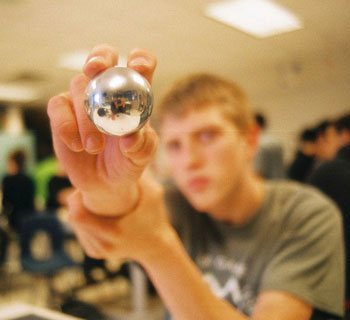
When your child is going through the autism diagnostic process, they will ask if your child reminds you of someone else in the family.  You name Grandpa, Auntie Millie, and Cousin Jim.  Ahem, and who else?  Mom?  Dad?
Autism tends to run in families, so you might start seeing autism traits in yourself or your child’s other parent. Â You don’t necessarily need to be diagnosed, but delving into the traits you may have, can better help you understand your child.
Here is a quick quiz to look into your own possible symptoms.
Adults with autism may not necessarily show the symptoms the same way. Â For example, when I have a meltdown, I get angry, sweaty, scared, anxious, or all of the above, and instead of yelling or other ways a child may express a meltdown, I walk away or go home. Â If my meltdown is at home, such as when we have people over, I go downstairs and immerse myself in writing or learning more web programming.
But, the company we have over the most are my step-kids and step-daughter-in-law, and I adore them, so when I have “come down,” I go back upstairs and parallel play or engage in some conversation. Â I don’t talk too much, but they know me well enough, I think, that the parallel play is being with them.
So, at this point, you are learning a lot about autism in your child, and perhaps in yourself. Â You have participated in parent groups online to learn and ask advice and to get and give support. Â You have learned more about symptoms in yourself, or maybe sought an official diagnosis.
Then comes the “ah-ha.”  It all starts making sense that you and your child are not “different,” rather, you are a part of a large community of autistic adults and children.  Then, you start hearing about famous people on the autism spectrum, many of which are thought to have autism, such as Einstein or DaVinci.
Wikipedia has a list of people on the spectrum citing sources.  The only think I don’t like about the list is a section name “high-functioning.”  Functioning level and experience are different for every person on the spectrum.  Also, I don’t know how “functioning level” could be defined.  I function quite well at some things, and I have to work hard at others, such as social skills.
But, I learn, as does every person on the spectrum. Â Autism is a developmental disorder, so I like to think of it as continuing to develop. Â What I can do now, I may not have known how in the past.
Now, given that you have learned some or more about autism, can you spot other adults or children on the spectrum? Â I have gained “autism radar,” where I can see traits in others as I am out and about, such as a grocery checkout clerk or staff at the doctor’s office.